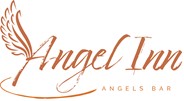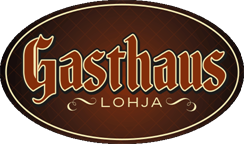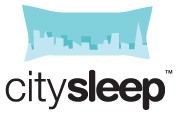The reason a customer buys from you rather than a competitor can be rather complex to understand.
It’s easy to assume that a guest is looking only for the cheapest room, motivated by price. But in fact, each prospective guest goes through a decision making process, a journey with different touch points or stages as they go from a point of discovery through to the final decision to buy.
Each stage in this journey is a unique opportunity for you as an operator to influence the buyer’s final decision, when at that one moment in time that they are ready to buy – that they have your hotel or brand front of mind.
The buyers journey
Guests have different priorities ranging from price to customer service to more emotional reasons that influence why they make a reservation at your hotel.
A lack of insight into this decision-making journey for those that book and stay at your property, large or small - can make the process of how you get your hotel to stand out, feel quite daunting.
Today, customers have access to so much information - no further away than the click of a mouse, which means that your approach needs to be tailored to the needs of the buyer.
Taking a high level, generic approach to how you communicate implies that you don’t really know your customers, a sentiment that the consumer can see in your lack of targeting.
Customers are already in the habit of filtering out so much of what you say as a business and rely to a much greater extent on the advice, recommendations and “word-of-mouth” referrals that they receive from friends, family, influencers, etc.
The path to purchase or buying journey from start to finish is rarely linear, as buyers jump on and off the journey at different stages. Digitization has enabled and empowered buyers to change how they consume the information they need to make their buying decision, so no one journey is entirely the same.
As a business to succeed in the digital marketplace, where so many travel decisions are made, means operators need to convert important information into a digital format and adopt a new digital approach to how they engage with customers.
Operators cannot think in the traditional ways of creating noise at that moment when you need business, with the hope that if you are ‘loud’ enough that somebody will be persuaded to make a reservation.
The internet provides so much leverage now to consumers, that the whole dynamics of making a purchase online, mean that the power is now in the hands of the buyers rather than the seller.
The decision making process
Discovery Stage
As a prospective buyer it would be naive to think that a person would make an instant purchase decision without doing some research of potential hotel properties based on meeting some initial criteria. For example, where are you going to stay, for how long, what type of accommodation are you looking for, is there a particular price point, etc.
And when it comes to how these prospective buyers find you, word-of-mouth is still the strongest influencer along with search activity and the relevance of your website content.
Most of us don't really start a search activity until we recognise a need that must be met or when our current solution isn't delivering in a satisfactory way.
It is typically from our peers and colleagues that we first learn about which particular locations to select, times to go, hotels to choose from for their wonderful experiences and such like.
Overall as buyers, human nature now makes us are far more likely to trust information from a third party - an unbiased and credible resource rather than anything we can get directly from the hotels themselves.
So, at this early stage of the buying journey, for your property to get on the ‘radar’ it needs to have some awareness. It needs to have invested in nurturing a brand profile, some underlying unique selling points that can be leveraged to make it stand out from its competitor set.
Research Stage
Buyers like to enjoy a consistent experience, the ‘red line’ across the multiple touch points that as a buyer I come across visiting different channels and using multiple devices to conduct my research.
Through-out this research stage of the buying process it is peer recommendations that remains the most influential source of information.
Now that your hotel name or brand is on the radar of potential customers, it is important to be able to create content that tells the story of your hotel, what makes it different and why I should stay with your property.
One of the major disadvantages of focusing on price as a marketing tool is that it is very easy to drop your prices when times are hard, but extremely difficult to raise them as conditions improve. To a great extent guests get accustomed to a particular price point and will resist your efforts to increase margins, especially if that was their primary motive to select your hotel in the first place.
What is extremely valuable about developing a story around your brand and hotel is that it is very difficult to copy. Each hotel has a unique story to tell, one that can evolve and grow over time and builds on the emotions of your guests.
An emotionally engaged and satisfied guest is far more likely to accept when the time comes that you need to increase your rates.
By using price as your point of differentiation, it means you have a feature than any other hotel in your competitive set can copy, and if times are really bad even drop below.
The majority of buyers at this research stage are looking for sources of information that will help rather than sell to them. Educating and informing the visitors to your website by publishing interesting content will be a far more effective tactic that continually pushing price promotions and deals.
Decision Stage
When it comes to making a buying decision, most of us probably involve a small group of people, who we either check information with or solicit advice from. That means as marketers we cannot focus our content efforts only on one specific person, we need to consider the motivations of those that may also influence a decision.
Purchase Stage
Your prospective customers at this final stage tend to come well versed in what they want, what your competitors are offering and the kind of deal that they are looking for garnered through self-research.
The prospective guest already knows the basics, so they want to hear the "Why"?
Why your hotel fits their needs better than anybody else, in order to convince them to make a reservation with you.
The need for creating buyer personas
Typically, each buyer will have a different agenda of what they are looking for in a hotel stay.
With a clearer understanding of the audience you wish to influence, it’s far easier to craft messages that resonate with their needs and experience preferences if you know their motivations.
Of course, you might have multiple profiles of guests, from the corporate stayers, to weekenders to meeting delegates, etc. But, trying to appeal to everyone will dilute your brand voice. So, develop your profiles with some common traits and motivations and then create unique individual profiles with specific details rather than a “one size fits all” approach.
It does not make sense that the person booking a wedding event has the same motivations as the person booking a Monday night stay for a business meeting in town. They both book because your hotel has a great reputation, known for wonderful guest experiences – but one books because you have a palatial lawn perfect for a marquee and the other because you are 5 minutes away from the convention centre.
Think beyond basic criteria such as age, gender, profession, and marital status. If you are going to understand more about the profile and typical behaviour of a buyer then you need to expand your thinking to their interests, hobbies, reasons for travelling, what they like most about your hotel, etc.
As operators we need to be able to identify the profile of the person who is making the decisions and what are their motivations as they research and evaluate prospective hotels.
By building a full, personalised picture of your prospective customer and identifying the different steps in their buying journey, you’ll be far more effective with your sales and marketing activities.
A buyer persona is a semi-fictional character created as a picture of an ideal customer. These audience profiles are commonly "pen portraits" that help us visualise and entrench the picture in our mind of the buyer.
The persona provides rich insight that can be picked up by sales and marketing to guide a sales strategy, help marketers design a campaign and work on customer engagement plans to generate and nurture leads.
Having a well-defined buyer persona will help you achieve a number of things:
- It's easier to create relevant content for your website with a real person in mind
- It humanises your customers, it puts a face to a name
- It helps clarify the challenges that they are trying to address and how you can present your hotel as the ideal solution
- Targeted and relevant content will help build trust
To find out more about your guests, start by diving into your own data. Analyse on-property purchases, requests, and booking details. Are there any consistent patterns that tell you more about your customers behaviour, how they book, where they source information, etc.?
Comments on review sites and social media are ideal for building up a picture of your guests.
An analysis of hotels in your competitive set can help you assess how others are positioning themselves to appeal to their target audience. You might find a new angle to connect with your target customers based on the research you have done building a buyer persona.
A great direct online booking experience
With prospective customers getting their first information about hotels online, property owners can now no longer ignore the need for an integrated online booking engine to be able to control the overall booking experience for their property.
It is far more effective to be able to manage the interaction directly with your guests so that you can build a relationship and control the message they see rather than having a third-party manage that.
Happybooking have always focused on creating a user-friendly property management system based in the cloud that can help property owners improve their revenue performance with a direct booking engine, generating increased profit margins by lowering commission costs and reducing admin time.
So, take a quick tour to see how it works - click here.
Take Away
Happybooking is first and foremost a property management system. That means they help you with the boring admin and automate tedious tasks giving you more time to focus on your guests. On average Happybooking customers can get back up to 10 hours per week – think what you could do with that extra time!
Our guest blogger is John Kennedy. John is a hospitality consultant, dedicated to helping increase profits through marketing, revenue management and efficient operations. www.kennedyandersson.com
Image source: www.pexels.com



